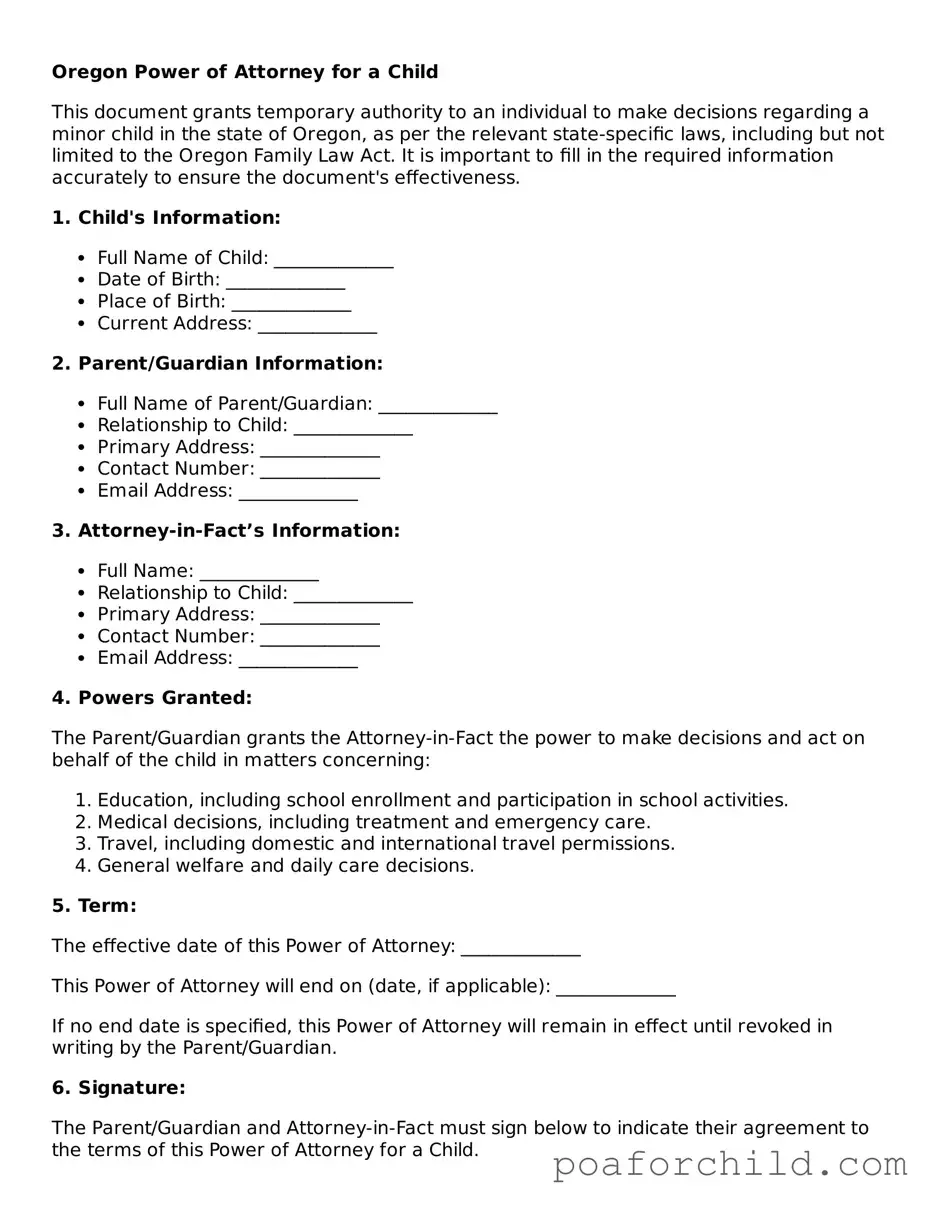Detailed Guide for Using Oregon Power of Attorney for a Child
Preparing a Power of Attorney (POA) for a child in Oregon is a responsible step in ensuring the child's well-being is managed by a trusted individual in the absence of the parent or legal guardian. This legal document grants temporary authority to an agent to make decisions and act on behalf of the parent for the child’s sake. It covers areas such as education, healthcare, and general welfare. Here are the steps you'll need to follow to properly fill out this form.
- Start by including the current date at the top of the form to ensure its effectiveness from that date onwards.
- Write the full legal names and addresses of the parent(s) or legal guardian(s) granting the power in the designated section. This identifies who is authorizing the power.
- Fill in the full legal name and address of the individual who is being appointed as the attorney-in-fact or agent. This person will have the authority to make decisions on behalf of the child.
- Specify the child's full legal name and date of birth to clearly identify whom the POA concerns.
- Clearly outline the specific powers being granted. This includes specifying what the agent can and cannot do on behalf of the child. If the form has predetermined powers, review them carefully to ensure they match your intentions.
- If the POA has a time limit, indicate the date of expiration. If no expiration date is desired, specify how it can be revoked or note that it remains effective until revoked.
- Both the parent(s) or legal guardian(s) and the designated agent must sign and date the form in the presence of a notary public to validate the document.
- The form may require witnessing by an impartial third party, depending on state requirements. Ensure these sections are completed if applicable.
- Finally, take the signed and notarized form to a notary public for official notarization. The notary will fill out their section, sealing the document legally.
After completing these steps, the Power of Attorney for a child in Oregon will be prepared and legally effective. It is highly recommended to keep copies of the document in a safe place and provide a copy to any relevant institutions, such as schools or healthcare providers, to make them aware of the temporary guardianship arrangement.
